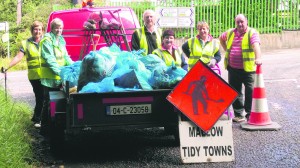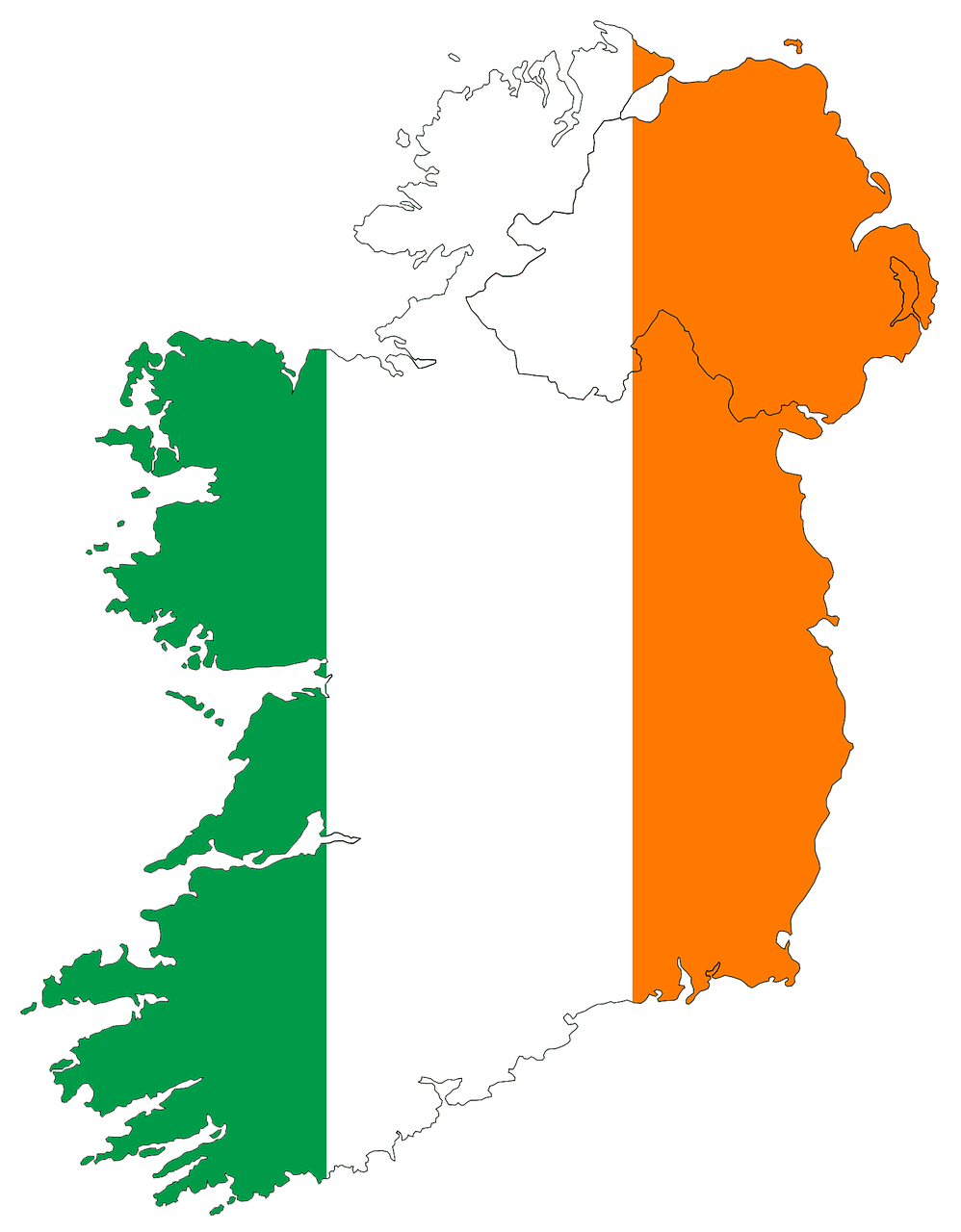
Dermot Casey has once again come to the rescue of Mallow Tidy Towns by donating a van to replace the old one, which had to be scrapped for safety reasons. Budget cuts by the Kanturk/Mallow Municipal Authority had meant that Mallow Tidy Towns were hard-pressed to replace the van. Mallow is a big town of 11,000 people. There are a lot of streets, laneways, side streets, car parks, green areas and open spaces that need cleaning, tidying and planting. Without a van, which is the workhorse of MTT, it was almost impossible to accomplish those tasks.
But now, thanks to the generosity of Dermot Casey, who feels passionately about his town, MTT is once again mobile in a wonderful van. Dermot approached Mallow Tidy Towns and told us that he particularly wanted to help: He said: “I appreciate and admire the voluntary work being carried out by MTT and am eager to support it by providing a van.”
Brendan O’Shea, Chairman of Mallow Tidy Towns said: “We cannot thank Dermot enough for stepping forward so generously. It means that MTT can continue with its work to brighten up the town and work at eradicating litter. Having a van also means that we can continue to support Le Chéile Mallow Men’s Shed from time to time.”
Mallow Tidy Towns would like to express its immense gratitude for this fantastic donation. Hopefully, the generosity of Dermot Casey will inspire others and contribute to greater community cohesion within the town. Be proud, get involved, and commit to improving Mallow. Contact Mallow Tidy Towns at mallowtidy towns@gmail.com, Find us on Facebook
. Follow us on Twitter, check out our website at www.mallowtidytowns.weebly.com or sign up to text alerts by sending your name to 086 3436 283. Together is Better!
What can be done to combat litter? Where there is a will there is a way.
The littered condition, despite a sizable cleanup on three occasions in as many months, by Mallow Tidy Towns of the Gouldshill area has prompted some reflection as to why there is so much littering in and about Mallow. The picture accompanying this article, of 30 sacks of litter, gives an idea of the extent of the problem.
There is no shortage of laws, guidelines, obligations and responsibilities to address the litter problem. However, what is seriously lacking is evidence of any form of enforcement. There are no litter wardens in Mallow and the litter warden for the municipal area is in Millstreet. As chairman of Mallow Tidy Towns for the past two years, I, Brendan O’Shea, have never been consulted on any form of a litter plan to be adopted by the Municipal Council members.
Who Litters and Why People Litter?
Research shows that along roadways, motorists (52%) and pedestrians (23%) are the biggest contributors to litter.
Why do people litter?
Personal choice.
Evidence of personal choice is everywhere: discarded fast food cartons, nappies, beer cans, cigarette butts, and vodka bottles. The road to Nazareth House is a favorite spot for discarding nappies.
Litter begets litter.
There is no doubt but certain spots both in and around the town attract litter: the GAA pitch Town Park, some laneways, Gouldshill, Sugar Factory Road, Spa Road. Picnic Area
It’s not my responsibility.
Some people feel no sense of ownership for parks, walkways and other public spaces. They believe someone else will pick up after them. This is clearly evident as one passes through the town past the pubs and fast food businesses. It is long gone since anyone, except for one or two individuals, have washed outside their premises.
What Can Be Done – Litter Enforcement
The Litter Pollution Act, 1997, as amended, introduced strong penalties to help combat the problems of litter pollution more effectively. To this end the Local Authority:
Is responsible for implementing the litter laws in the area.
Is responsible for keeping public places (including public roads), clear of litter as far as is practicably possible. This includes the arrangement of cleansing programmes and the provision and emptying of litter-bins.
Is obliged to prepare a litter management plan for its own area.
Is obliged to consult with local community and voluntary interests before a plan is adopted by the Municipal Council Members.
Litter and public places.
If you either own or are responsible for a place to which the public has access (e.g. places like a school grounds, public park, transport stations or the precincts of a shopping centre), you are obliged by law to keep the place litter-free, regardless of how the litter got there.
Litter and private property.
The owner or occupier of property that can be seen from a public place is also obliged to keep the property free of litter. This means that any outdoor area on your property visible from a public place must be kept free of litter. Failure to keep your property free of litter can result in a fine or prosecution by your local authority.
Local authorities and litter blackspots.
Where litter has accumulated on property for any reason and this litter is visible from a public place, the local authority can issue a notice to the owner or occupier requiring the prompt removal of the litter. Such a notice can also set down precautionary measures to be put in place to prevent a reoccurrence. If a property owner or occupier fails or refuses to do everything that has been requested, the local authority has the power to do whatever is necessary itself and require the owner or occupier to pay all of the costs involved.
Litter control at major events.
The promoters or organisers of major events (i.e. social and sporting events) are required to ensure that they have litter control measures in place at the venue and in the surrounding vicinity before, during and after the event.
Mobile Food Outlets.
Operators of mobile food outlets selling fast food or beverages or other outlets such as those selling farm produce are obliged to provide suitable litter bins in the vicinity of their outlets. Also, they must clean up any litter arising from the operation of their outlets within a radius of 100 metres of their outlet.
Illegal dumping.
The litter laws have increased the powers of your local authority to combat the problem of illegal dumping of refuse and rubbish. If your local authority finds material that is illegally dumped and establishes the identity of the owner of the material, that person will have a case to answer without necessarily having to be caught in the act. In addition, extra powers are also available to your local authority to require a householder or business operator to indicate how and where they are disposing of their waste. This is particularly relevant if the householder or business owner is not availing of a refuse collection service or is not bringing their waste to an authorised disposal facility.
Dog fouling.
Dog owners must now remove their pets’ waste from public places and dispose of it in a proper manner.
Posters and signs.
The law forbids the putting up of posters/signs on poles or other structures in public places unless you have the written permission of the owner of the pole or other structure in advance of putting up the posters/signs and requires that an article or advertisement must carry the name and address of the person who is promoting or arranging the meeting or event being advertised, or, in any other case, on whose behalf the article or advertisement is being exhibited.





